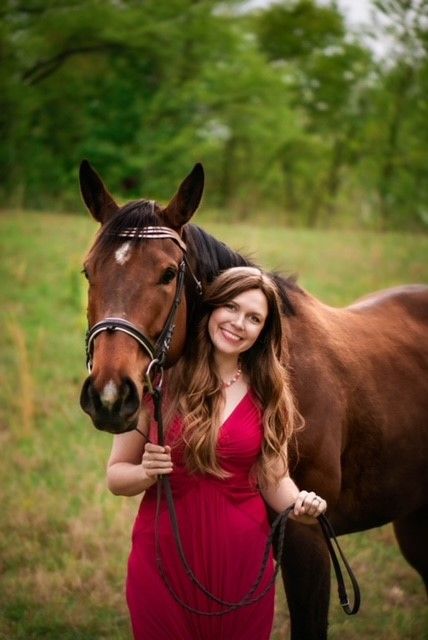Outfitting Your Horse Barn
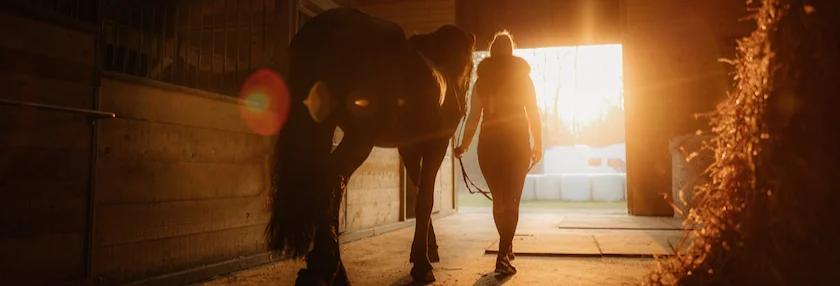

‘My favorite room in the house is the barn standing next to it’
Over the course of the last eight or so months, my construction-savvy parents, along with my husband and I, constructed our barn during evenings and weekends.
Important to me was ensuring large stalls, individual doors leading to both the barn aisle and paddocks (in case of fire), a wide barn aisle for backing in and unloading feed, natural light and ventilation, and a basic tack/feed room. I’m proud to say, “Mission accomplished!”
For those considering building a horse barn or having one built, it is surprising how much information is available online through university extension offices across the country. They offer an immense amount of information as you take on your project.
Penn State Extension has a wonderfully detailed ‘Horse Stall Design’ resource covering dimensions, doors, lighting and ventilation, flooring, and more.
Search extension office resources online for layouts, best practices, and other ideas as you get started.
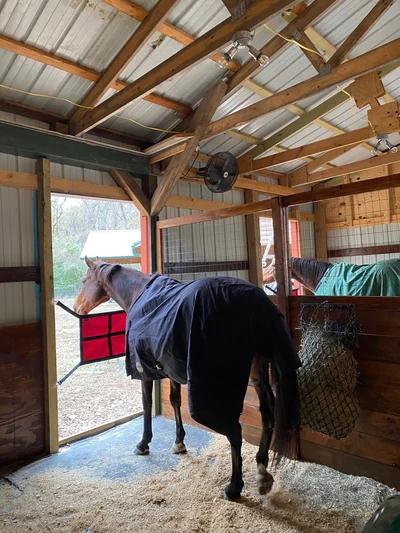
After your barn is constructed, it’s an exciting feeling to load down your truck with new barn accessories and stable supplies! Here are a few thoughts for consideration to make your barn the most comfortable for horses and most efficient for you.
Watering
Water is the most important nutrient horses receive, and they can intake 10 gallons of water per day. Thus, opting for two 5-gallon water buckets per stall is ideal.
Interestingly, a new study reports that horses have a preference in the color of their water buckets—it’s suggested to use turquoise or blue water buckets.
We have two blue water buckets per stall, and we have heated flat-back buckets we switch in during cold weather. Refilling individual buckets takes time, though, which we’re all running short on, so if your budget can allow for automatic horse waterers, youyou won’t have to wrestle a water hose.
Feeders
Corner feeders, over-fence feeders, rubber feed pans…there are many options for feeding horses, and it’s really all up to personal preference and how your stalls are constructed.
For ours, we opted for corner feeders in the stalls, strategically placed on opposite sides of the next horse’s feeder (because, they can be as ‘hangry’ as I can be, honestly) and rubber feed pans for use in the pasture. A few friends also like the ground-level, three-in-one corner feeders that have individual sections for hay, grain and salt.
Hay
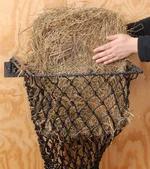
As with feeders, how you dish out hay is up to personal preference, and maybe that also of your equine. There are hay bags to hang, hay racks to adhere to stall walls, and more. We went with Hay Hoops; they make it easy. Once affixed to the wall, you can open the collapsible mount and easily stuff in their flakes of hay. It comes with a slow-feed net, too, so it keeps our busy Thoroughbreds happy Thoroughbreds.
Stall mats
Rubber stall mats are a worthy investment and will help save time on mucking out stalls. They also offer a nice level of support for stalled horses.
Barn fans
Wherever you are in the country, it’s likely you see some warm days and will need to install barn fans. While box fans are commonly found in horse barns, they present greater fire risk as dust and hay can more easily reach the motor, which can potentially cause a fire.
Be safe and choose horse stall fans with an enclosed motor.
This will keep dust and debris out and the fan operating as expected. More so, an enclosed motor barn fan helps prevent barn fire risk! We installed 18" indoor/outdoor, waterproof fans in each stall. They are quiet and work great.
Enrichment
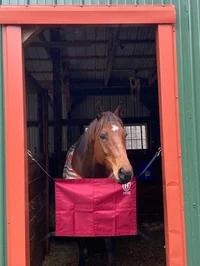
Toys and enrichment opportunities for horses continue to become more common in the equine industry, due in no small part to knowledge learned from working with zoo animals. There are a number of different options to help bust boredom and deter naughty stall habits.
With much to consider, hopefully these thoughts will help you get well on your way to outfitting your dream barn.
About the author:
ValleyVet.com content manager, Aimee Elyse Robinson, draws from her lifelong experience with horses, coupled with the veterinary wisdom bestowed upon her from her years working in animal health. She resides with her husband on an Oklahoma ranchette that’s also home to off-track Thoroughbreds, and rescue and foster dogs. A co-recipient of the 2022 AHP Equine Media NextGen Award.
Build your horse barn on a budget
https://www.jandnstructures.com/blog/project-planning/how-to-build-a-horse-barn-on-a-budget
Some horse barn must-haves often overlooked
Tags:Horse Sense

Acreage Life is part of the Catalyst Communications Network publication family.







